Question And Answer
Publications
Articles, publications, books, tools and multimedia features from the U.S. Institute of Peace provide the latest news, analysis, research findings, practitioner guides and reports, all related to the conflict zones and issues that are at the center of the Institute’s work to prevent and reduce violent conflict.
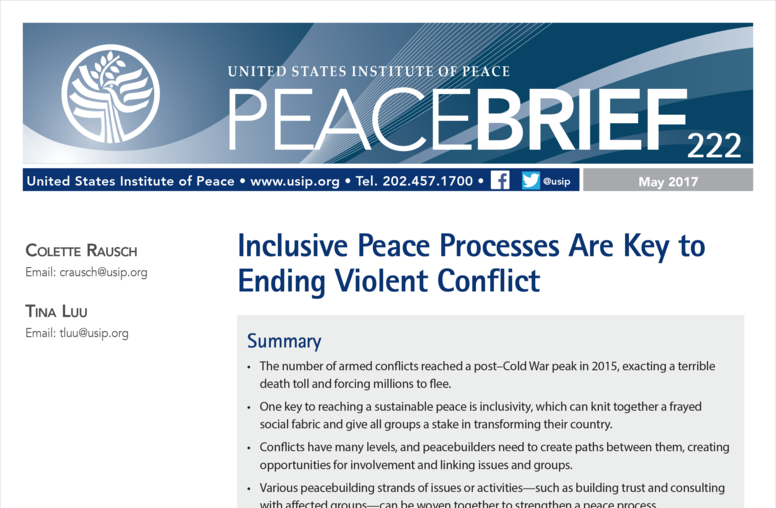
Inclusive Peace Processes Are Key to Ending Violent Conflict
Violent conflict, refugee flows, and internal displacements present international policymakers and practitioners today with unprecedented challenges. Tackling these problems requires not only signed peace agreements but also sustainable peace. It is not enough to bring armed actors to the negotiating table, however. To be effective, the peace process needs to be inclusive and participatory. But what constitutes inclusive participation, and how can peacemakers and peacebuilders achieve it in their own, very different societies? Drawing on discussions in a public forum held in early 2017, this Peace Brief looks at the elements of peacebuilding and explains how critical inclusive participation is to that process.
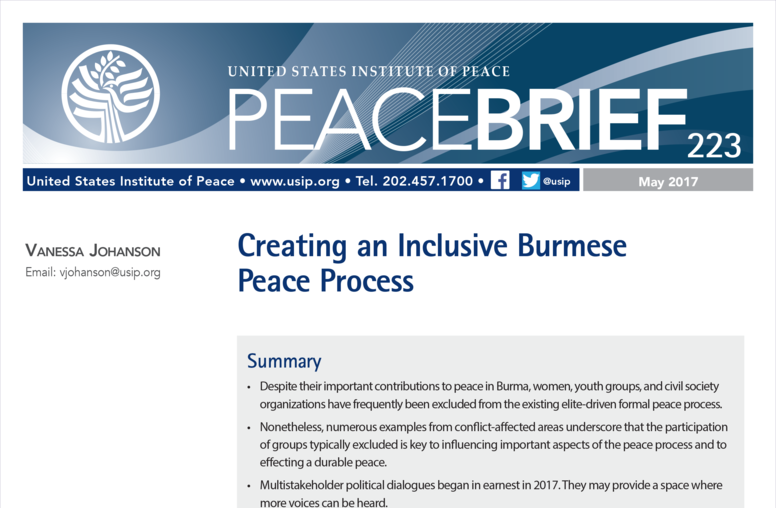
Creating an Inclusive Burmese Peace Process
Burma's peace process reached a milestone with the October 2015 signing of the Nationwide Ceasefire Agreement. The Aung San Suu Kyi government, the most democratic in living memory, has prioritized the peace process; however, many women's and youth groups and other civil society organizations have been marginalized during the negotiations, their voices on important topics silenced in favor of elite input. As a result, a parallel track of activism aimed toward peacebuilding outside the formal structure has developed. The international community should support both tracks while continuing to urge the formal inclusion of marginal groups in the main process.
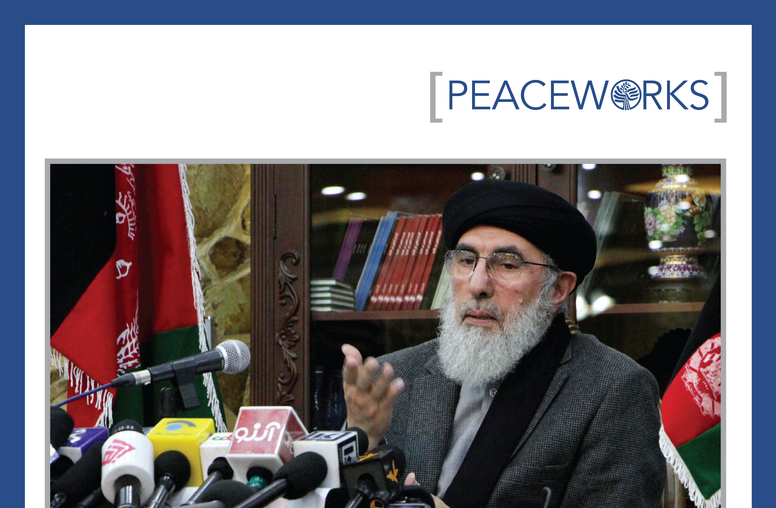
Hezb-e Islami, Peace, and Integration into the Afghan Security Forces
With an eye to an eventual end to the Afghan insurgency, this report examines the struggle within Afghanistan’s National Unity Government over the country’s security sector and the related impact on the recruitment of Hezb-e Islami commanders and fighters in the security forces as agreed to under a 2016 peace deal.
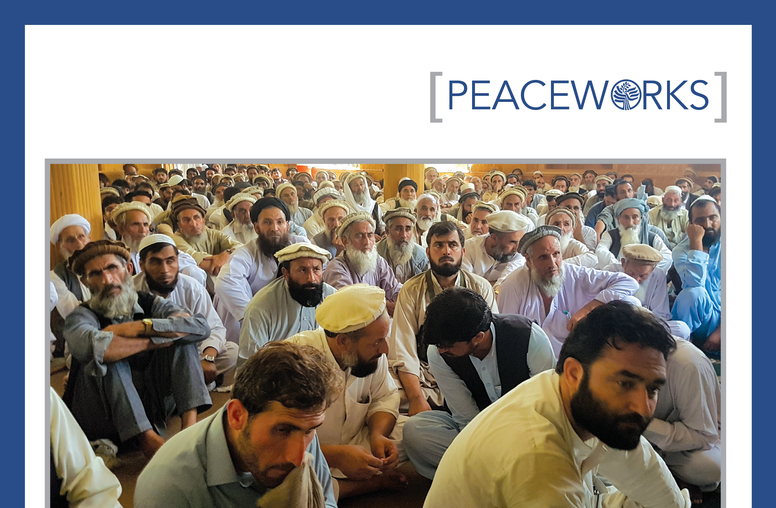
The Political Deal with Hezb-e Islami
The deal signed with Hezb-e Islami in September 2016 was the Afghanistan government’s first major success at negotiating a peace agreement with an insurgent group. This new report examines how the deal was negotiated, what progress has been made on its implementation, and what lessons can be applied to prospective peace talks with the Taliban.

Andrew Wilder on the Afghan Peace Process
“I think President Trump has really unlocked the possibility for the peace process by putting our troops on the table, as long as we just don’t withdraw them unilaterally,” says Andrew Wilder. Following President Trump’s clarification of the administration’s strategy during the State of the Union, Wilder shares his analysis of the ongoing peace process in Afghanistan.

Lucy Kurtzer-Ellenbogen on the Warsaw Conference
Last week’s U.S.-led Warsaw Conference brought together more than 60 countries to discuss peace and security challenges in the Middle East. The conference underscored U.S.-European tensions over Iran
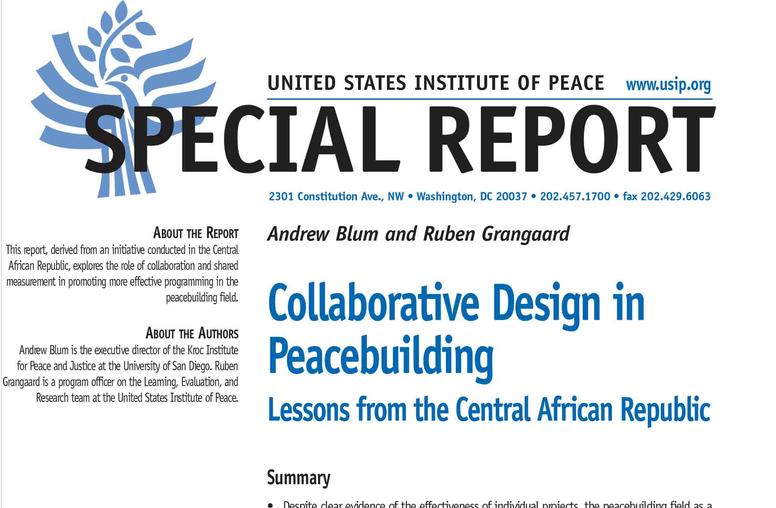
Collaborative Design in Peacebuilding
Despite clear evidence of the effectiveness of individual peacebuilding efforts, the field as a whole often struggles to have a meaningful collective impact on broader conflict dynamics. This report, drawing on a pilot initiative in the Central African Republic—IMPACT-CAR—to develop a shared measurement and reporting system aimed at improving collaboration and shared learning across peacebuilding implementers, reflects on the results, successes, and challenges of the initiative to offer a road map for future initiatives focused on collective impact in the peacebuilding field.

Nancy Lindborg on Nigeria's Central Role in Africa
Fresh from her USIP delegation trip to Nigeria, Nancy Lindborg explains Nigeria’s importance to Africa and the United States. Lindborg discusses the critical on-the-ground work happening to prevent violence and underscores the importance of Nigerian governors to countering Boko Haram.
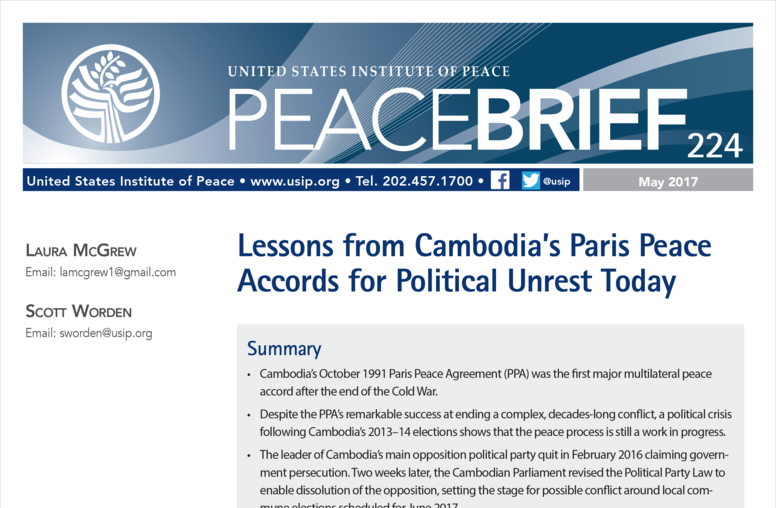
Lessons from Cambodia’s Paris Peace Accords for Political Unrest Today
In December 2016, to mark the twenty-fifth anniversary of the 1991 Paris Peace Agreement that ended the decade-long war between Cambodia and Vietnam, USIP hosted a conference to examine the implementation of that agreement and how the decisions made in the past have affected increasing political unrest in the country. Panelists included several key actors...
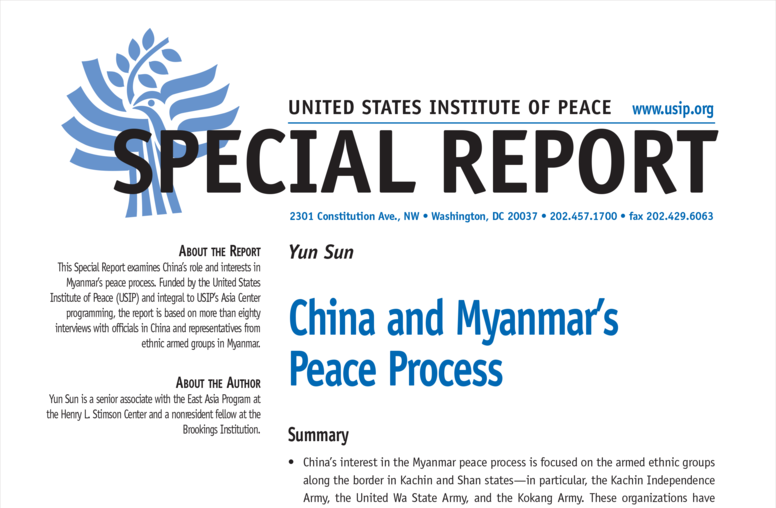
China and Myanmar’s Peace Process
For multiple historical, ethnic, geographic, political, and economic reasons, China has been and will remain an integral player in Myanmar’s internal peace process, particularly regarding the ethnic armed groups in northern Myanmar. Informed by numerous interviews in both China and Myanmar, this Special Report examines China’s positions, policies, and role in that process.